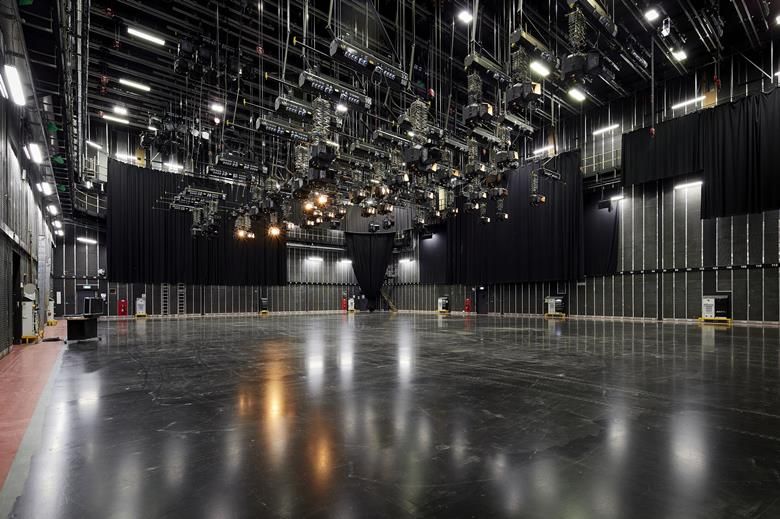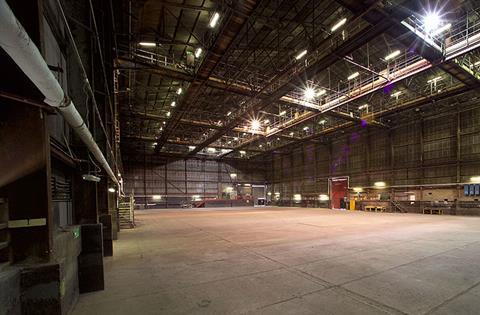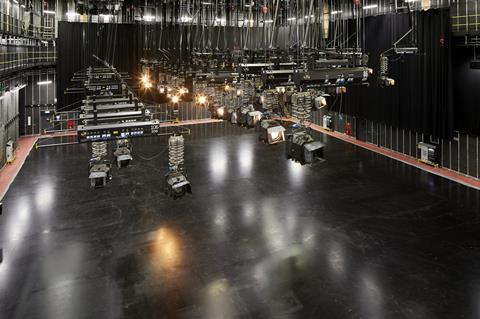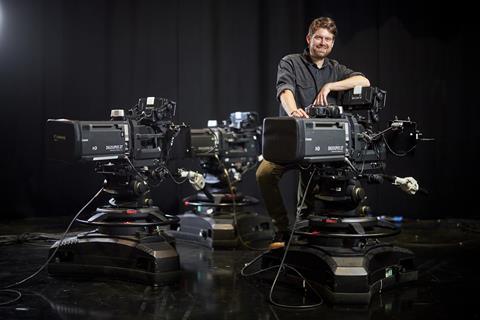The Basics: What is the difference between a sound stage and a TV studio?

The word 'studio' must rank as one of the most confusing terms in the worlds of TV and film.
A 'studio' can mean multiple things. On the one hand, a studio is the name for a big company that makes and distributes films and TV shows, like Disney or Warner Bros. Discovery. Alternatively, a studio can refer to a large building or site where films and TV shows are made.
If the latter, then there are two very distinct kinds of studios: a sound stage and a multi-camera TV studio.
So, what is the difference between a sound stage and multi-camera TV studio? A great deal, it turns out. You probably wouldn't want to book a sound stage for a TV panel show while renting a TV studio for a big movie production could turn out to be a very expensive mistake.
Despite this, the terms are frequently mixed up. That's likely because a sound stage and a TV studio are, essentially, the same thing: large warehouses where content is created. But that is where the similarity ends.
Sound stage

Let's start with a sound stage. At the most basic level, a sound stage is what its name suggests: a stage that has been sound proofed.
Sound stages were conceived in response to the advent of sound in film in the late 1920s and early 1930s to allow for live audio recording.
As they are sound proofed, filming can take place without any noise interference from outside, whether sirens from emergency vehicles or planes flying overhead.
The stages are typically very large, warehouse-like buildings with high ceilings and concrete floors that can accommodate large scale sets. They will be equipped with a reliable power supply for lighting, and a strong overhead grid to hang lighting equipment from. Production offices, make-up and dressing rooms, and workshops will be located nearby.
Some stages are even simpler than this. Across the UK, many industrial premises are offered for filming, even though they are not sound proofed. While likely cheaper to rent than a sound stage, they can end up proving costly in the long run because their lack of soundproofing means that filming can suddenly be interrupted by external noises.
Typically, a sound stage is used for cinematic productions - films and TV dramas - that capture scenes using one primary camera. The production rents the sound stage for a period of weeks or months, and brings in its own crew, technicians and cameras during filming.
Multi-camera TV studio

Let's turn now to a multi-camera TV studio. This is a much more complicated space than a simple sound stage.
A television studio typically has a flat and smooth resin floor that is usually (but not always) painted with a glossy black finish.
The smooth resin surface of the TV studio allows multiple cameras mounted on pedestals to glide seamlessly across the floor during filming. The cameras are provided by the TV studio.
A TV studio also provides lighting, ready installed in an overhead lighting grid. The lighting is fully adjustable and customisable so it can cater for the different shooting needs of productions using the studio.
Additionally, a TV studio comes with a gallery equipped with a video monitor wall and vision mixing desk. Also known as the production control room (PCR), it's the place where a production filming in the studio is controlled.
As its name suggests, a multi-camera TV studio is for productions that shoot with multiple cameras like entertainment, news and sports shows as well as sitcoms. They are filmed live or as live. As a result, the entire production process is usually handled in and around the studio. Hence the need for the gallery where a vision mixer can cut the show as it happens. Graphics and replays can also be added in real-time. (By comparison, there is no need for a gallery at a sound stage, as film or TV dramas will be finished off-site at a later date in a post-production house.)
The turnaround of productions in a TV studio is quick. Because a show will be filmed live or as live, many are in and out within a day.
TV studios must also be equipped with a highly resilient power supply. Secure and powerful network connectivity is also vital so that programmes can be delivered live to broadcasters. Situated in the same building as the TV studio will be production offices, make-up and dressing rooms.
As we've seen, the differences between a sound stage and a multi-camera TV studio are considerable. In many ways, hiring a sound stage is akin to renting a very large, unfurnished flat that can act as a blank canvas for a TV drama or film. By comparison, a TV studio is more like a hotel, one that is fully equipped and staffed and that can meet all the needs of a high number of guests.

Sam Handsley is studio manager at dock10
)
)
)
